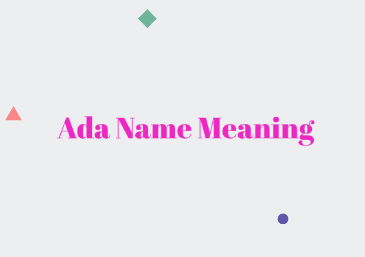The name Zoe has gained significant popularity in recent years, not only because of its melodic sound but also due to its deep historical roots and positive meaning. In this article, we’ll explore the meaning, origin, and rising popularity of the name Zoe, as well as some key facts about its usage around the world.
Meaning of Zoe
The name Zoe is derived from the Greek word ζωή (Zoe), which means “life.” It is often associated with vitality, energy, and the essence of living. The name has a timeless appeal, evoking positive and life-affirming qualities. It can be seen as a symbol of resilience, growth, and the enduring nature of life itself.
Throughout history, the name has had various spiritual and philosophical connotations. In early Christian texts, Zoe was used as a synonym for eternal life, symbolizing the divine life granted to believers. Because of this association, Zoe has been used in religious contexts, adding layers of depth to its meaning.
Origin of Zoe
Zoe is of Greek origin, with its roots tracing back to ancient times. It was popularized in the Byzantine Empire, where it was frequently used as a given name for girls. The name spread to other parts of Europe, becoming especially common in countries with Christian traditions, thanks to its spiritual connection to eternal life.
In addition to its Greek roots, Zoe also appears in various forms across different languages and cultures. For example, in French, it is often spelled Zoé, and in Spanish-speaking countries, it may be written as Zoe or Zoé. Despite minor spelling variations, the pronunciation and core meaning remain the same.
Popularity of Zoe
Over the past few decades, Zoe has experienced a notable surge in popularity, particularly in English-speaking countries. The name has been embraced in the United States, the United Kingdom, Canada, and Australia. According to the Social Security Administration in the U.S., Zoe has consistently ranked among the top 100 baby names for girls since the early 2000s. In 2023, Zoe was ranked #36 for baby girls in the United States, indicating its widespread use and appeal.
One reason for the name’s rise in popularity is its simplicity and elegance. It is short, easy to pronounce, and can be paired with a variety of middle names. Additionally, its meaning of "life" resonates with many parents who want to impart a sense of vitality and positivity to their child’s name.
Moreover, the name Zoe has been popularized by various celebrities and public figures, adding to its mainstream appeal. Actress Zoe Saldana, known for her roles in Avatar and Guardians of the Galaxy, is one such figure who has helped bring attention to the name. As a result, many parents now see Zoe as a trendy yet timeless choice for their daughters.
Global Usage and Variations
Zoe is not only popular in Western countries but also in other parts of the world. The name has been embraced in various forms, including Zoé in France, Zöe in Germany, and Zoeh in the Middle East. In each culture, the name maintains its core meaning and is associated with positive connotations of life and vitality.
The name Zoe has also gained traction in countries outside of the Western world. For example, in Asia, especially in China, the name is gaining recognition due to its simple pronunciation and the growing trend of adopting Western names. This global popularity underscores the universality of the name’s meaning and its broad appeal across different cultures.
Famous People Named Zoe
There are several well-known individuals who have carried the name Zoe, contributing to its popularity and association with talent, beauty, and intelligence. Some of the most famous figures include:
- Zoe Saldana – The popular American actress known for her roles in Avatar, Guardians of the Galaxy, and Star Trek.
- Zoe Kravitz – The American actress, singer, and model, daughter of musician Lenny Kravitz and actress Lisa Bonet.
- Zoe Ball – A British television and radio presenter, well-known for hosting the BBC Radio 2 Breakfast Show.
These figures have helped cement Zoe as a name that is not only trendy but also associated with creativity, talent, and success.
Variations of Zoe
While Zoe is a beloved name on its own, several variations and similar names exist across different cultures. Some of the most common variants include:
- Zoé – The French variation, adding an accent to emphasize the name’s pronunciation.
- Zoeh – A variation found in Middle Eastern countries.
- Zora – A Slavic variant that shares similar roots and meaning, often interpreted as “dawn” or “daybreak.”
- Zosia – A diminutive form used in Polish-speaking regions.
These variations retain the essential meaning of Zoe while offering some regional flair.






